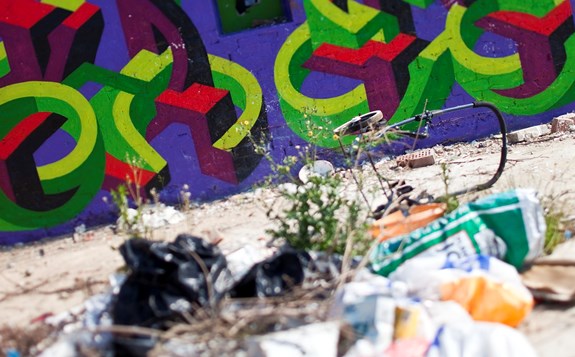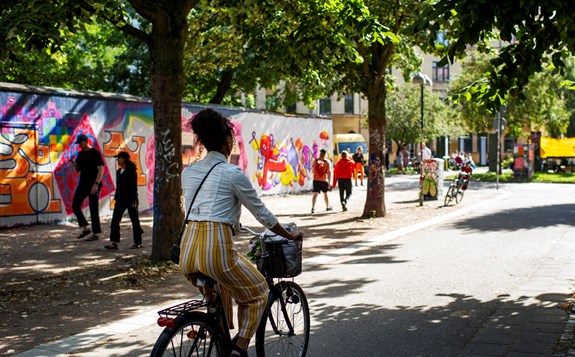We use cookies on this website. Cookies help us deliver the best experience on our website. Read about cookies.
-
- Education
- Education
- Programmes and courses
- Applications and admissions
- Tuition fees
- Scholarships
- Exchange studies at Malmö University
- Study Guidance
-
- After admission
- After admission
- Moving to Malmö
- Pre-orientation
- Arrival guide
-
- About studies at Malmö University
- About studies at Malmö University
- Why choose Malmö University
- Understanding university studies
- Connect with our students
On the page -
- Research
- Research
-
- Doctoral studies
- Doctoral studies
- Doctoral courses
-
- Doctoral schools
- Doctoral schools
- Doctoral school: Education, Learning and Globalisation
- Doctoral school: The National Research School for Professionals in Social Services
- Doctoral school: Learning in Multicultural Societal Contexts
- Doctoral school: ComBine
- Doctoral school: Swedish National Graduate School in Science and Technology Education Research
- Doctoral school: Relevancing Mathematics and Science Education (RelMaS)
- Doctoral school: Sustainable Movement Education
- Doctoral school: Finding ways in a time of great future challenges (FinnFram)
- Doctoral school: Pedagogy and Vocational Skills
- Doctoral school: Culturally Empowering Education through Language and Literature
- Research subjects
-
- Research centres
- Research centres
- Biofilms Research Centre for Biointerfaces
- Citizen Health
- Imagining and Co-Creating Futures
- Institute for Urban Research
- Malmö Institute for Migration Studies
- Literacy and Inclusive Teaching
- Centre for Work Life Studies
- Sustainable Digitalisation Research Centre
- Centre for Sexology and Sexuality Studies
-
- Research publications
- Research publications
- Search publications
- Malmö University Press
- Research events
- Participate in a research study
- Coffee Break Quiz
On the page -
- Collaboration and Innovation
- Collaboration and Innovation
- Innovation
- Collaboration with students
-
- Collaborate with researchers
- Collaborate with researchers
- Labs and facilities
- Culture collaboration
- Support Malmö University
- Alumni & Friends
On the page -
- About us
- About us
-
- Faculties and departments
- Faculties and departments
-
- Faculty of Culture and Society
- Faculty of Culture and Society
- Department of Urban Studies
- Department of Global Political Studies
- School of Arts and Communication
-
- Faculty of Education and Society
- Faculty of Education and Society
- Department of Childhood, Education and Society
- Department of Sports Sciences
- Department of Natural Science, Mathematics and Society
- Department of School Development and Leadership
- Department of Culture, Languages and Media
- Department of Society, Culture and Identity
-
- Faculty of Technology and Society
- Faculty of Technology and Society
- Department of Computer Science and Media Technology
- Department of Materials Science and Applied Mathematics
-
- Faculty of Odontology
- Faculty of Odontology
- Master's programmes in Dental Science
- University Dental Clinic
- Management and decision-making paths
-
- Vision, objectives and strategy 2025
- Vision, objectives and strategy 2025
- Global engagement
- Sustainability
- Widened recruitment and participation
- Quality assurance work at the University
-
- Malmö Academic Choir and Orchestra
- Malmö Academic Choir and Orchestra
- Student work – video pieces
-
- Annual Academic Celebration
- Annual Academic Celebration
- Academic traditions
- Meet our new professors
- The University in a troubled world
On the page
Sustainability
university
Our long-term ambition is to contribute to sustainable development and to sustainable use of resources.
Sustainability
Malmö University will contribute to long-term sustainable economic, social and environmental development. We have an important task to contribute through our teaching and research, but we also need to contribute by reducing the impact of our own operations. As a university, we have a central role in the fight against climate change and we are one of the Swedish institutions that have joined the Climate Framework for higher education institutions.
Environmental report 2024
Malmö University presents its environmental work in an annual report. Get an overview of the most important results, see good examples from our activities and read the Vice-Chancellor's introduction.
Malmö University's environmental goals 2025
The environmental objectives are based on the university's environmental review and focus on eight areas.
1. Climate change
Through the Climate Framework for Swedish higher education institutions, Malmö University has a commitment to reducing the impact of its operations on the climate. This should be done at a rate that is in line with the goal of limiting global warming to 1.5°C.
Goal
- Malmö University is committed to reducing its greenhouse gas emissions by at least 50 per cent by 2030 (base year 2019) and then continuing to reduce emissions until they are close to zero.
Interim goals
- To reduce emissions from business travel by at least 52 per cent by 2025 (base year 2019).
Interim goal - To have roadmaps in place for reducing greenhouse gas emissions related to purchase of IT products and services, food, consumables, and construction by 2025.
2. Properties
Malmö University will work to ensure sustainable facility management, sustainable use of its properties and protect the immediate environments of those properties. This means that during the period covered by the environmental goals, the University must reduce its use of energy and other resources. This will be achieved by, among other things, working with energy efficiency measures and with circular flows of materials and furnishings in the maintenance of properties.
Goals
- To reduce the amount of purchased energy by 1.5% per year/per square metre, by 2025 (base year 2019).
- Certification of Orkanen according to the Sweden Green Building Council’s Miljöbyggnad IDrift system.
- To reduce the purchase of newly manufactured furniture through maintenance and repair of existing furniture, and through re-use.
- To clarify the requirements placed on suppliers, strengthen the internal competencies and develop new procedures for climate and other environmental considerations in projects and property management.
3. Waste and chemicals
Malmö University is committed to making conscious purchases and to handling all chemicals and possible hazardous waste with care. This is to minimise risks when handling substances and to ensure that these substances do not contaminate circular flows of materials.
Goals
- To reduce the proportion of unsorted waste (residual waste) by 50 per cent by 2025 (base year 2019).
- Work to reduce the amount of disposable items, especially plastic packaging.
- Develop university-wide training in chemical safety for staff and students in labs, clinics and workshops.
4. IT and digitalisation
Malmö University will use digitalisation as a tool for reducing the use of resources, emissions from transport and travel, more efficient use of premises, etc. Malmö University must choose providers of IT equipment and services that take environmental and social responsibility.
Goals
- To recover 100 per cent of mobile phones and tablets.
- To continue to reduce the proportion of purchases of newly manufactured IT equipment and work to ensure that environmentally beneficial products are chosen when purchasing.
- To increase understanding of the environmental impact of using AI and conduct an internal dialogue about its responsible use.
5. Procurement and purchasing
Malmö University will ensure general environmental and social requirements in all procurements, as well as product/service-specific requirements in procurements that are of priority.
Goal
- To systematise the follow-up of environmental requirements in agreements.
6. Communication and professional development
Malmö University will give employees, students and other interested parties insights into, and invite them to dialogue about, the University’s environmental and climate efforts. The University is also tasked by the government to encourage learning about sustainable development and to promote professional development at all levels of the organisation.
Goals
- To communicate externally and internally about environmental and climate efforts, in accordance with Strategy 2025.
- To continue to develop support for the University’s teaching staff in education about sustainable development.
7. Collaboration partners and students
Malmö University views collaboration with external partners and students as a prerequisite for our environmental work, as well as for joint learning about, and for, sustainable development. A sustainability perspective should be an integral part of all our collaborations.
Goal
- To collaborate continuously with students and the City of Malmö on the green transition.
8. Research
Malmö University will, in accordance with the commitments in the Climate Framework, contribute to society’s ability to achieve its goals. The University can achieve this by working with open science and by strengthening the abilities of researchers, and supporting them in their efforts, to communicate their research to other stakeholders in society, for example.
Goal
- To promote access to climate-related research and contribute to the wider public debate on the green transition.



